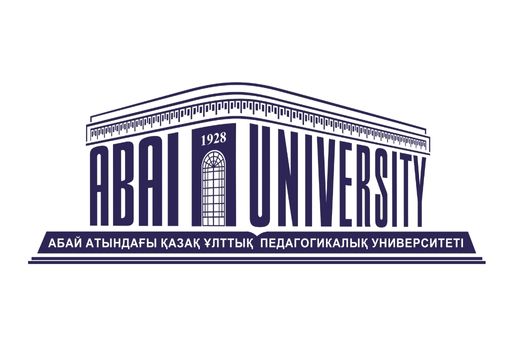Period of project implementation: 2024-2026.
Project relevance: Abai’s works have been translated into many languages. To date, we know several translations of the words of edification into Russian. Translations by Viktor Shklovsky under the title «Edification», co-authored by Klara Serikbaeva and Rollan Seisenbaev under the title «Book of Words» and Satimzhan Sanbaev «Words of Edification». These works translated into Russian do not cause any complaints in terms of the quality of translation. However, in fairness, it should be noted that during the Soviet period, the works of Kazakh classics of literature were seriously subject to textual changes, and the outstanding Abai is no exception. For example, the image of a bai-patron of the XIX-XX centuries was presented in a connotative-reduced meaning. He is represented by a certain miser, greedy, ready to let all the people around him go hungry. This is an exploiter, a tyrant from whom it is impossible to hide. An example is a play called «Know, descendant, I have made a road for you», which is shown on the stage of the Russian drama Theater. Konstantin Stanislavsky in Karaganda.
In this study, a new translation of the words of edification from the book «Abai Kunanbayev. Gakliya kitaby». The transcription of Murseit Bikeuli manuscripts from Arabic graphics into Cyrillic was carried out by the Turkish scientist Yerzhan Petek. The author, taking into account the lexical, phonetic, semantic, grammatical features of that time, conveyed the text in its original form.
It is necessary to consolidate in the minds of modern Kazakh youth the image of the noble patronage of rich people in the past, through various photo exhibitions, film adaptations, painting artistic portraits, etc. This will have a positive effect on the modern business elite reflected in the universal formula in the novel by the famous Kazakh writer Zholtai Zhumat-Almashuly «intellectuals + capital = prosperity of the people».
Project purpose: The purpose of this project is to translate the words of Abai’s edification into Russian, to rehabilitate the image of bai, which was previously presented in a connotative-reduced meaning.
Project objectives: Since translation serves as one of the objective indicators of the nature and intensity of cultural interchange, the importance of selection for literary works, as well as the requirements for the quality of literary translation, increases significantly. The objectives of the project are:
- Work on the manuscript;
- The use of handwritten material in the analysis of the lexical features of writers;
- Comparative analysis with the prose of Russian writers;
- Compiling a list of obsolete words in the Abaya language;
- Analysis of names and terms whose etymology is unknown and determination of their structure;
- Consideration of the old ones as not used now; inactive words that have fallen out of use, although understandable; forms used today, but have passed into a different meaning.
Research group composition:
1) Buteyev Baktiyar Orazgalievich – PhD, Project Leader, Senior Researcher, ORCID 0000-0001-8945-3740
2) Serikova Samal Kairzhanovna – PhD, Scientific Advisor, Associate Professor (acting), Hirsch Index-2, ORCID 0000-0002-8825-0121 Scopus Author ID 55802257800
Results // Expected results: 1) publication of articles in foreign peer-reviewed scientific journals (prospective publications for the publication of the project results, the citation index of the publication, with reference to information about the publication in the corresponding scientometric database). The requirements for the number of articles based on research results are set in the competition documentation. Each article should contain information about the identification registration number and the name of the project under which it is funded, indicating grant funding as a source.
– at least 5 (five) articles and (or) reviews in peer-reviewed foreign and (or) domestic publications recommended by the CCMHES.
2) publication of monographs, books and (or) chapters in books of foreign and (or) Kazakhstani publishers;
– 1 (one) monograph with a postdoctoral contribution of at least 6 p.l., reviewed and recommended for publication by at least two holders of the academic title of professor and/or the academic degree of doctor of sciences.
3) obtaining patents in foreign patent offices (European, American, Japanese), in Kazakhstan or Eurasian patent offices;
Not planned.
4) development of scientific and technical, design documentation;
Not planned.
5) dissemination of the results of the work among potential users, the community of scientists and the general public;
The monograph will be presented and distributed in national, state, intra-university libraries.
6) other measurable results in accordance with the requirements of the competition documentation and the specifics of the project. Additionally, the section specifies:
The most accurate semantic translation of the words of edification will be carried out, taking into account the lexical features of the Abai language, which will not only convey the meaning, but also preserve the artistic style of the original, in order to convey to readers not only the content, but also the emotional and artistic essence of the work.
Since translation is an indicator of cultural interchange, it is expected that it will attract the attention of readers and become an object of discussion in the cultural community. This can contribute to an active discussion and a better understanding of cultural values. Also, a successful translation helps to increase interest in Abai’s literary heritage, attracting a new generation of readers to his works.
The image of bai will be rehabilitated by overcoming biases or stereotypes that could have been associated with this image earlier.
One of their scientific articles will be devoted to the topic of obsolete words that have lost their relevance in the modern language, but were used in Abai’s work. An analysis of names and terms with unknown etymology will also be carried out and an attempt will be made to reveal the possible sources and origin of these lexical units.

